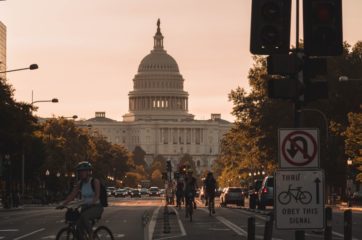On Friday, January 5th, the Massachusetts Department of Public Utilities (DPU) approved Eversource’s request to impose a net metering demand charge on residential solar customers, making Massachusetts the first state in the country to approve such a charge. Resultantly, starting in 2019, Eversource will be able to charge its two classes of residential solar customers an additional $2.21/kW and $2.71/kW for the energy they consume. The decision brought the DPU flak from the Acadia Center, Northeast Clean Energy Center, Solar Energy Industries Association, and other solar organizations. But what is net metering, and what about it made the decision controversial?
First, let’s look at Eversource’s stated justification for the demand charge. Eversource vocally supported the DPU’s choice, with company spokeswoman Priscilla Ress claiming that, “The demand charge…will eliminate, to the extent possible, the unfair cross subsidization by non-net-metered customers that currently exists.” The “cross subsidization” Ress alludes to is the fact that rooftop solar customers don’t pay for grid maintenance (since they produce electricity via the panels on their property). On the surface, the argument makes sense: it seems wrong that non-residential customers should have to pay more because their neighbors have solar panels.
So, are residential solar customers really failing to pay their fair share? In a very literal sense, yes, according to research from Lawrence Berkeley National Laboratory (LBNL). But LBNL also reports that the price increase resultant of this “cross subsidization” is negligible. Cost shifting to non-solar customers only happens at solar penetration rates of 10% or more. For reference’s sake, solar penetration in Massachusetts was around 6% as of 2016. And, even at 10% penetration, the impact amounts to only a half-cent per kilowatt-hour. That number contrasts starkly with the greater-than-$2 net metering charge approved by the DPU.
The Acadia Center has expressed its disapproval regarding the decision, stating that the DPU was “moving backwards rather than forward” on the issue. In addition to being unjustified in purpose, the Acadia Center noted that solar customers will lack the information necessary to understand why they’re being charged more and how they can reduce their costs. The Northeast Clean Energy Council and Solar Energy Industries Association voiced similar disappointment with the DPU determination. Vote Solar and EarthJustice also announced they will bring a legal appeal to the Massachusetts Supreme Judicial Court as soon as early February.
The DPU’s recent action in support of net metering is reminiscent of 2016’s legislative decision to allow utility companies to levy a minimum bill on residential solar users. In lobbying for that minimum bill provision, Eversource and other utility companies made an argument similar to the one used in their most recent DPU case, claiming that residential solar customers are not paying their fair share to maintain electric grids. But, as previously mentioned, LBNL has debunked the relevance of that claim. Utility companies are framing residential solar customers as freeriders, prioritizing scare tactics over research data in their arguments.
The facts are clear: Eversource’s net metering charges will not only place an unfair price burden on residential solar customers, but could likely stifle the sustained growth Massachusetts solar has seen in recent years. This decision runs counter to the Commonwealth’s decade-long push to become a national leader in clean technology. Currently, Massachusetts is the second greenest state in the country–a coveted position put in jeopardy by the DPU’s decision. And with the effects of climate change in Massachusetts becoming more and more pronounced, we need to take bigger steps in support of renewable energy, not a giant step backwards.
 RYAN MAIA COMMUNICATIONS FELLOW
RYAN MAIA COMMUNICATIONS FELLOW
Ryan is a fourth-year undergraduate student at Northeastern University studying International Affairs and Philosophy. During his college career, Ryan has held positions at the Boston Bar Association and the Massachusetts Attorney General’s Office. On campus, Ryan is the President and Co-Founder of EcoScholars Boston, which provides climate change education to local high school and middle school students. Last summer, Ryan’s interest in sustainability led him to Singapore, where he conducted university-sponsored research on sustainable governance. Prior academic experiences have also taken Ryan to Canada, Costa Rica, and Ireland. He also regularly represents Northeastern at Model United Nations, Arab League, and NATO competitions. Ryan’s interests include climate-displaced persons, sustainable development, and international environmental policy. During his free time, Ryan enjoys photographing Boston, playing soccer, and eating somewhat spicy food.









